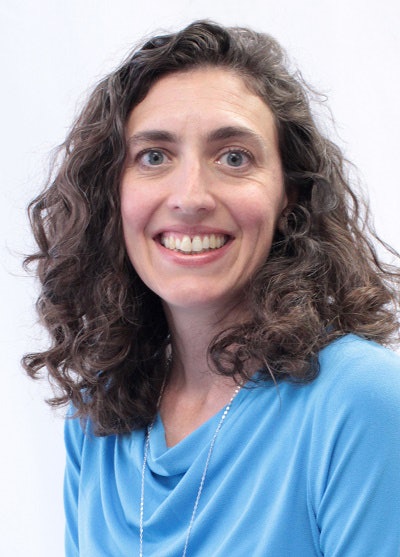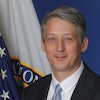It feels as if not a week goes by that we don’t hear another disturbing story about campus unrest—a clash of perspectives on specific issues, or differences in worldview bubbling over into disruptive events and sometimes even violence. Most of us carry memories of the 2016 national election season turbulence and are bracing for a repeat in the 2020 cycle. Our campuses offer no reprieve (if ever we thought they did) from the brutal tenor of the national public discourse. This unsettling shift in the campus dynamic is pushing many of us to re-examine our mission, demanding that we focus not only on the eventualities of higher education’s preparatory purpose—what students will be doing as professionals, citizens, or leaders in the future—but also on the campus environment, student experience, and student leadership in the present. At our institution, we are keenly aware that our mission of preparing students to “participate in the creation of a more just and humane world” can only happen if they are already participating in the creation of a more just and humane campus.
Furthermore, we recognize that the deepest divides and most violent clashes in the national dialogue stem not only from real (indeed profound) disagreements on significant issues, but also from a tendency to override the increasing diversity of society by self-selecting into narrow subgroups of the like-minded. This atomization of the U.S. culture poses a threat to the cohesion of the nation. And it is a threat that higher education is uniquely positioned to address.
Institutions of higher education share a commitment to public purpose and the common good. The education of our students is for their prosperity, but also for a just and prosperous society. The college or university campus offers a unique opportunity for maturity and formation, freedom and prescription, change and tradition, diversity and commonality. For a period of time, a specific group of people with widely divergent worldviews come together to learn, discuss, and debate weighty and contentious topics under the direction of faculty dedicated to the groups’ learning process. The students are together not only in the classroom, but also in the dining hall, on the athletic field, in the game room, residence hall, and places of worship. Our students cannot opt out of grappling with differences of opinion or identity. It is our great opportunity and tremendous privilege to help them craft respectful and enriching relationships during their college experience.
 Dr. Claire Noonan
Dr. Claire NoonanA research team composed of scholars from the Interfaith Youth Core, The Ohio State University, and North Carolina State University recently released a study that proves to be a rich resource for those of us ready to embrace this opportunity. The National Interfaith Diversity Experiences and Attitudes Longitudinal Survey (IDEALS) assesses students’ experiences on campus related to worldview diversity, and tracks changes in outcomes in what the researchers refer to as “pluralist” attitudes and behaviors, or the ability to engage difference actively, respectfully, and with acceptance and commitment, while appreciating differences as well as commonalities.
In examining many factors of the college experience, researchers found that “the top ten facilitators of positive change include both supportive experiences and provocative encounters, the latter being akin to ‘brave spaces’ distinguished by social justice educators (Arao & Clemens, 2013).” For my institution, in particular, the students surveyed reflected their experience of Dominican University as a welcoming environment, with well over 80% reporting that their classes “are safe places for me to express my worldview.” This is certainly a priority for us and a value embedded in our foundational commitments to truth and relationship. We work intentionally and diligently to create a hospitable atmosphere for all of our students, not irrespective of their differences but because of and in light of them.
At the same time, our students also report high degrees of “provocative encounters with worldview diversity,” suggesting they frequently feel challenged to rethink their assumptions about others, and about themselves as well. Students in significant numbers are reporting that they have discussed questions of shared values across religious and non-religious traditions in class, visited religious spaces of a different tradition than their own, or learned about religious diversity in the university orientation program.
It seems that this combination of welcome and provocation, safe and brave space, is the secret sauce. It is the “both/and” of comfort and a supportive push beyond comfort that results in a high pluralism orientation (75% in our case) which IDEALS defines as “the extent to which students are open to and accepting of people with religious and/or worldviews that differ from their own.” We can feel confident students are prepared to participate in the creation of a more just and humane world because they have already experienced their own humanity and the humanity of those who differ from them in the college life.
Nidhin Thomas, a recent alumnus and varsity athlete from suburban Chicago, shared this story of his experience at Dominican. “Growing up, I was very insecure about being Indian. I used to crack Indian jokes that were very self-deprecating. In reality, what I was screaming on the inside was ‘I get it that I’m brown, but I’m not different from you.’” Although Christian, because of his ethnicity, Nidhin was often assumed to be Hindu and experienced religious as well as racial discrimination. But in college he found a transformational community among his teammates. “We got into debates a lot. This is why I love my team. You would think that a bunch of jocks would not be talking about faith and philosophy, but this is exactly what we were doing.” He reflected, “We need to push more earnest and honest conversations that push us closer to the truth. The reason why me and my friends were able to have that conversation is because we all have our own worldviews. And they are all sacred in our own eyes and we respect that. We didn’t have these conversations to win people over, but to understand each other better. Now when people challenge me with their worldviews or I face insecurities, that is totally okay because I know who Nidhin Thomas is and it is engrained into my soul.”
Nidhin understood from his lived experience the beautiful transformation made possible by the intersection of welcome and provocation. His story illustrates the great potential of intentionally interfaith higher education. We can feel confident students are prepared to participate in the creation of a more just and humane world if we know they have already experienced their own humanity and the humanity of those who differ from them in college life.
Dr. Claire Noonan is the vice president for Mission and Ministry at Dominican University (River Forest, IL), where she is also the chair of the Interfaith Cooperation Committee.















